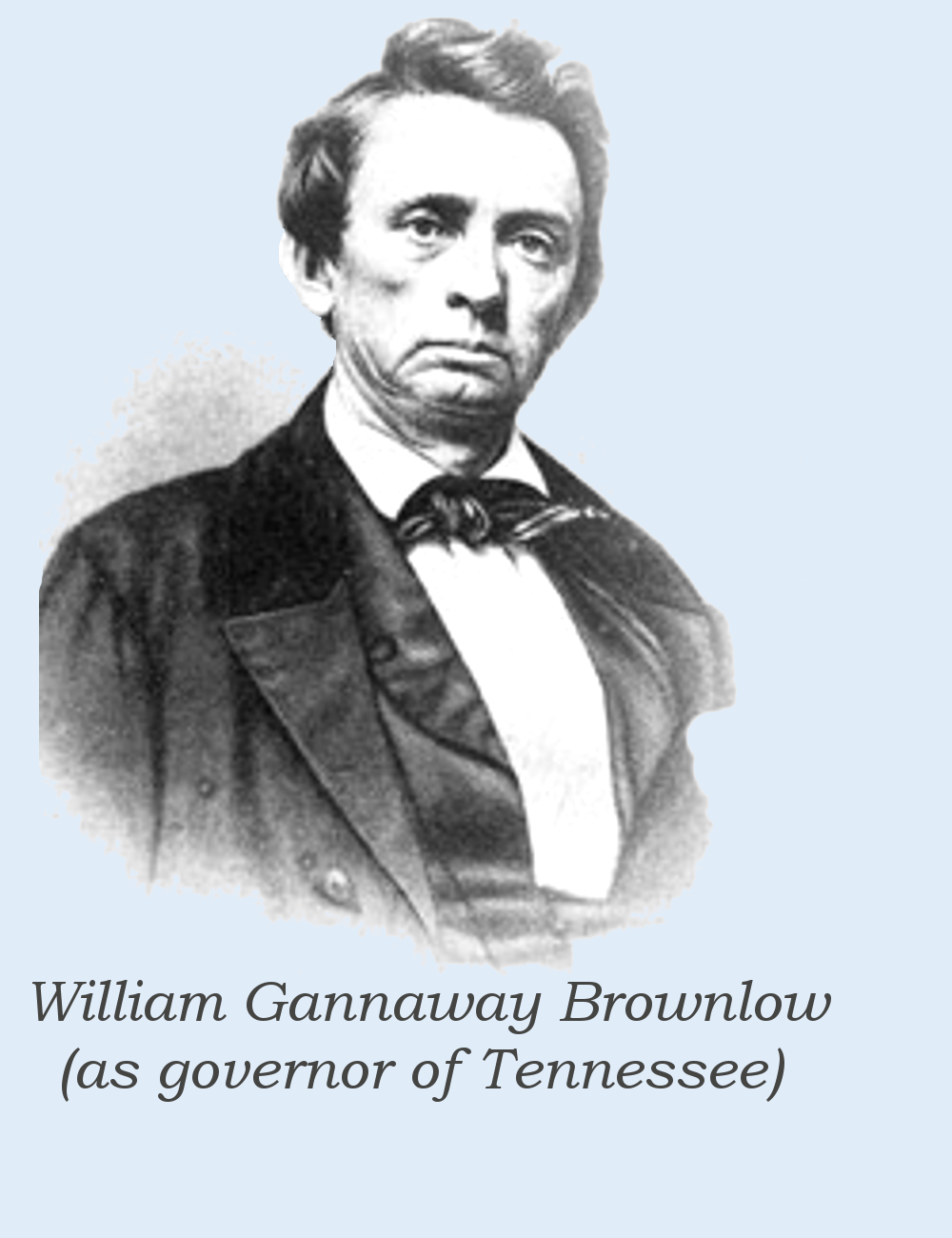
William Gannaway “Parson” Brownlow
 Biography
BiographyWilliam Gannaway “Parson” Brownlow (August 29, 1805–April 29, 1877) was an American newspaper publisher, Methodist minister, book author, prisoner of war, lecturer, and politician who served as the 17th Governor of Tennessee from 1865 to 1869 and as a United States Senator from Tennessee from 1869 to 1875. Brownlow rose to prominence in the late 1830s and early 1840s as editor of the Whig, a polemical newspaper in East Tennessee that promoted Whig Party ideals and opposed secession in the years leading up to the American Civil War. Brownlow’s uncompromising and radical viewpoints made him one of the most divisive figures in Tennessee political history and one of the most controversial Reconstruction Era politicians of the United States.
Beginning his career as a Methodist circuit rider in the 1820s, Brownlow was both censured and praised by his superiors for his vicious verbal debates with rival missionaries of other sectarian Christian beliefs. Later, as newspaper publisher and editor, he was notorious for relentless personal attacks against religious and political opponents, sometimes to the point of being physically assaulted. But at the same time he was successfully building a large base of fiercely loyal subscribers. Brownlow returned to Tennessee in 1863 and in 1865 became the war governor with the U.S. Army behind him. He joined the Radical Republicans and spent much of his term opposing the policies of his longtime political foe Andrew Johnson. His gubernatorial policies, which were both autocratic and progressive, helped Tennessee become the first former Confederate state to be readmitted to the Union in 1866, exempting it from the lengthy federal military reconstruction inflicted on most of the South.
Brownlow utilized the Tennessee state government to enfranchise African-American former male slaves with the right to vote and to qualify as candidates for public offices in Tennessee elections soon after the Civil War. When Democrats managed to regain power in the state afterward, ex-Confederate political leaders and military officers, using the Ku Klux Klan and likeminded vigilante groups, worked to disenfranchise African-Americans and undo most of the progress made under his governorship.
Bibliography
Helps to the Study of Presbyterianism (non-fiction, 1834)
Baptism Examined: Or, the True State of the Case (non-fiction, 1842)
A Political Register, Setting Forth the Principles of the Whig and Locofoco Parties in the United States (non-fiction, 1844)
Americanism Contrasted with Foreignism, Romanism and Bogus Democracy (non-fiction, 1856)
The Great Iron Wheel Examined; Or, Its False Spokes Extracted, and an Exhibition of Elder Graves, Its Builder (non-fiction, 1856)
Sketches of the Rise, Progress, and Decline of Secession (non-fiction, 1862)
Other links
Encyclopedia.com
Tennessee Historical Society
Virginia Center for Civil War Studies
Wikipedia